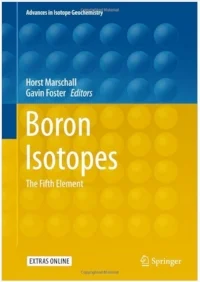PhD opportunities @theFosterlab
/Through our new DTP at Southampton (INSPIRE) we have 3-fully funded PhD projects available this year. Please click on the links below for more details and how to apply through GSNOCS (our graduate school). The deadline is 04 January 2019. Please contact Gavin through this website (here) or email: gavin.foster@noc.soton.ac.uk
Boron isotopic composition of coralline algae at super-high resolution determined using laser ablation by Fietzke et al. (2015, PNAS). Examining the boron & carbon isotope variability at this scale in Project 1 is key for unpicking the health of coral reefs.
Project 1. Reconstructing the health and productivity of coral reef systems at high resolution: Laser ablation analysis of boron and carbon isotopes in corals. Here the student will develop and apply novel laser ablation methods to analyse boron and carbon isotopes in situ in corals (and potentially other carbonates) to determine the evolution of the ocean carbonate system at super high temporal resolution.
The Li, Sr and Os isotopic composition of the oceans over the last 70 million years from Misra et al. (2012). Project 2 investigates the role of the changing carbonate system in driving d7Li. Project 3 revisits the variability in 87Sr/86Sr over the Cenozoic to better determine the relationship between silicate weathering and climate.
Project 2. Lithium isotopes in foraminifera: a new proxy for the ocean carbonate system? Li isotopes in carbonates may be a tracer of weathering, but do they also reflect changes in the carbonate system? This project will examine this question through a combination of field, laboratory and culturing studies.
Project 3. Old proxy, New techniques: Reshaping the seawater strontium curve and resolving its implications for climate feedback processes. Sr isotopic composition of marine carbonates has long been used as a tracer of silicate weathering, new analytical techniques developed at Southampton offer the potential to use Sr to open a new window into the relationship between weathering and climate.





